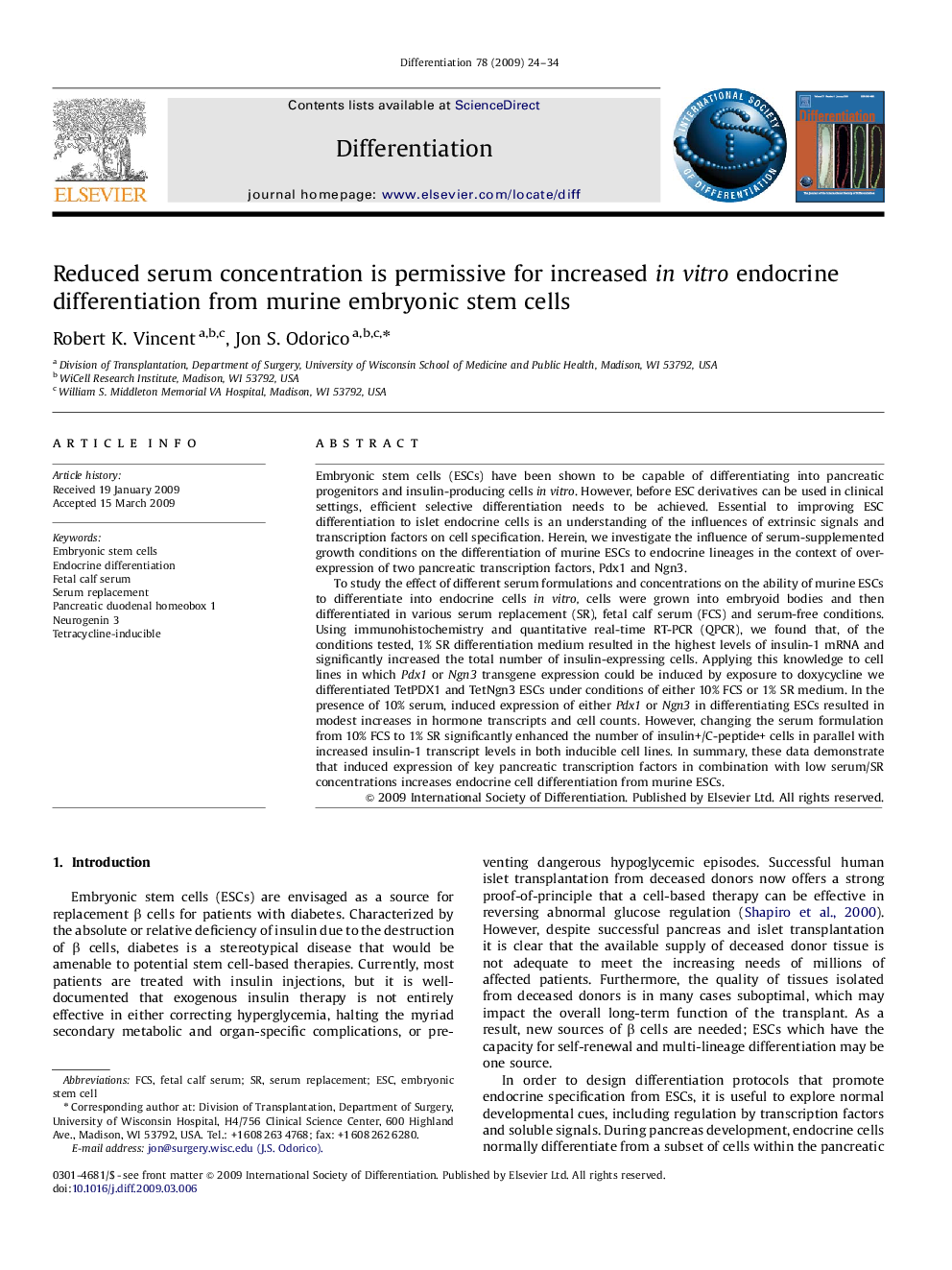| Article ID | Journal | Published Year | Pages | File Type |
|---|---|---|---|---|
| 2119848 | Differentiation | 2009 | 11 Pages |
Embryonic stem cells (ESCs) have been shown to be capable of differentiating into pancreatic progenitors and insulin-producing cells in vitro. However, before ESC derivatives can be used in clinical settings, efficient selective differentiation needs to be achieved. Essential to improving ESC differentiation to islet endocrine cells is an understanding of the influences of extrinsic signals and transcription factors on cell specification. Herein, we investigate the influence of serum-supplemented growth conditions on the differentiation of murine ESCs to endocrine lineages in the context of over-expression of two pancreatic transcription factors, Pdx1 and Ngn3.To study the effect of different serum formulations and concentrations on the ability of murine ESCs to differentiate into endocrine cells in vitro, cells were grown into embryoid bodies and then differentiated in various serum replacement (SR), fetal calf serum (FCS) and serum-free conditions. Using immunohistochemistry and quantitative real-time RT-PCR (QPCR), we found that, of the conditions tested, 1% SR differentiation medium resulted in the highest levels of insulin-1 mRNA and significantly increased the total number of insulin-expressing cells. Applying this knowledge to cell lines in which Pdx1 or Ngn3 transgene expression could be induced by exposure to doxycycline we differentiated TetPDX1 and TetNgn3 ESCs under conditions of either 10% FCS or 1% SR medium. In the presence of 10% serum, induced expression of either Pdx1 or Ngn3 in differentiating ESCs resulted in modest increases in hormone transcripts and cell counts. However, changing the serum formulation from 10% FCS to 1% SR significantly enhanced the number of insulin+/C-peptide+ cells in parallel with increased insulin-1 transcript levels in both inducible cell lines. In summary, these data demonstrate that induced expression of key pancreatic transcription factors in combination with low serum/SR concentrations increases endocrine cell differentiation from murine ESCs.
